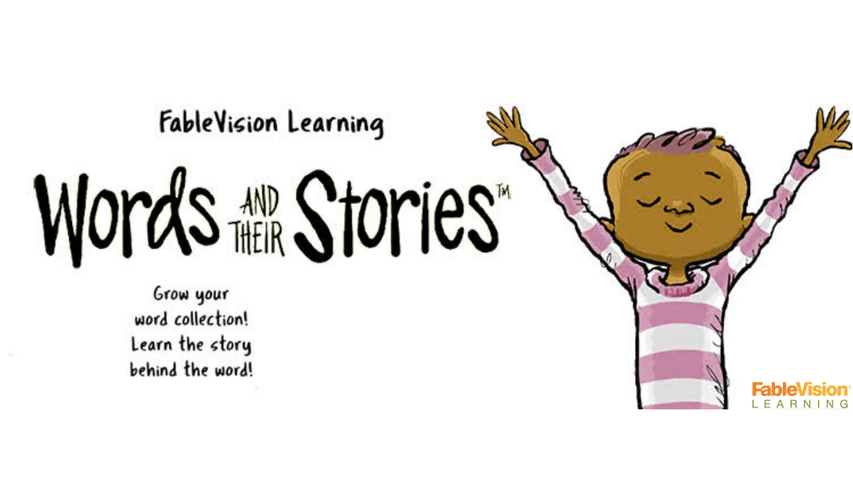Vocabulary-Building Game for Distance Learning
As you formulate your plans for distance learning, you might want to consider vocabulary building as part of a well-rounded remote curriculum.
However, it can be a challenge to teach vocabulary to students remotely. How can you make your lessons both effective and engaging?
One resource for your distance-learning toolkit can be Words and Their Stories - a fun, game-based online vocabulary-building program that teaches (you guessed it!) the fascinating stories behind words.
Etymology is Great Storytelling!
Etymology can be thought of as the history of words. Where and when, you might consider, did a word originate? Who created it, and why? What other words are related?
You’ll find that, much like people, words have surprising stories to tell…
Berserk: “Now here's a weird word! In Old Icelandic, the words ber serk meant ‘bear shirt.’ This was a reference to the fact that Norse warriors wore shirts made of bear hides, and if one of these warriors fought with extraordinary violence and fury, he was called a berserker.”
Peculiar: From the “Latin pecu, meaning ‘cattle.’ Like many other societies in the ancient world, the early Romans measured their wealth in cattle. Thus, peculium came to mean ‘private property; property in cattle,’ followed by peculiarus, which meant ‘of one's own property.’ So, when peculiarus became the English peculiar around 1450, it no longer referred to cattle or property, but to something specific to ‘one's own’ self.”
Yoke: From “the Old English geoc, meaning ‘oppression.’ In ancient times, a yoke was an arch that conquering Roman soldiers made with their spears and forced their enemies to walk under, a clear sign of Roman control.”
These are three examples of the kinds of “stories” that can be found in the Words and Their Stories program.
The platform then leads the students through quizzes, context clues, and analogies — each offering a different type of critical thinking.
Unlike plain memorization, this kind of game-based interaction with words makes the definitions really stick!
Working Remotely, and Working Well
Teachers can arrange for students to log-in to the Words and Their Stories program on their laptops or home computers.
From home, students will play the game, learn new words, quiz themselves, and have a lot of fun!
Teachers will be able to:
Track student's improvement and see scores for each level of the program.
Filter words by level of difficulty and/or theme, which makes lesson creation simple.
Add their own words to the program and create custom word lists.
Vocabulary Opens Doors
A strong vocabulary is arguably the cornerstone of your students’ communicative development. It allows them to better understand what they read, and also empowers them to express their thoughts with greater fluency, precision, and skill.
This can build confidence that will last a lifetime!
To bring Words and Their Stories to your grade 5-12 “remote classroom,”
please contact us at info@fablevisionlearning.com.


